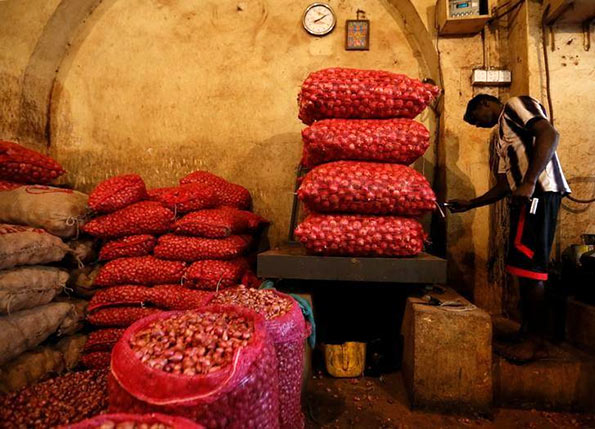IMF sees stability in Sri Lanka’s macroeconomic, financial conditions

The International Monetary Fund (IMF) on Saturday said Sri Lanka’s macroeconomic and financial conditions have begun to stabilize and the island nation’s performance under its $1.5 billion loan programme is satisfactory.
The global lender, after completing the first review of Sri Lanka’s economic performance, also said inflation has trended down and the balance of payments has improved, though international reserves remain below comfortable levels.
The completion of the review enables the second IMF disbursement of $162.6 million under the loan, bringing the total disbursements to $325.1 million.
“Fiscal performance has been encouraging. The reinstatement of the amendments to the value added tax (VAT) will help boost revenues,” the IMF said in a statement.
“The 2017 budget proposal aims to strengthen government finances through revenue mobilization, while guarding against revenue shortfalls by aligning spending with revenue on a quarterly basis.”
It also said complementary structural reforms in tax administration, public financial management, and the governance and oversight of state-owned enterprises are critical for durable fiscal consolidation.
Budget proposals presented in Sri Lanka last week included revisions to corporate and withholding taxes to boost revenue and cut the 2017 fiscal deficit to 4.6 percent of GDP from this year’s 5.4 percent.
The IMF has set a 4.7 percent budget deficit target next year.
The government also aims to boost its 2017 tax revenue by 27 percent to 1.82 trillion rupees ($12.35 billion) year on year, to meet a commitment given to the IMF in return for the loan.
Parliament last month passed a bill to raise VAT by 4 percent with effect from Nov. 1 in a move to boost government revenues, months after two court rulings delayed the move.
Facing both debt and a balance of payments crisis, Sri Lanka sought IMF loan early this year while expressing its willingness for fiscal reforms with an aim of reducing the budget deficit to 3.5 percent of the GDP in 2020.
Since the IMF approved the loan, the central bank has raised key monetary policy rates by 50 basis points and stopped defending the local rupee currency by selling dollars.
(Reuters)
Latest Headlines in Sri Lanka
- Imported milk powder price reduction uncertain amidst importers’ disagreement April 25, 2024
- Sri Lanka and Iran sign five agreements to boost bilateral relations April 25, 2024
- 12th International Meeting on Security Matters: High-Ranking officials convenes in Saint Petersburg April 24, 2024
- Uma Oya Development Project inaugurated April 24, 2024
- Damitha Abeyratne and husband granted bail April 24, 2024



There are either, ‘blind’ officers in the IMF or maybe, some Indian officers who can be captured with a brown paper bag.
This is rather disgusting. The Govt who does not care about it’s own native taxpayers, how can such a Govt deserve these handouts for the WB?
How long ago was it since IMF visited SL last 3 months or 6 months and then they have a listening post in colombo to sneak on as to what and how Ravi is doing…..but then like most international agents more of their time coktailing and then folllowing the presidential elections and most likely Trump win must have come as a shock for trump though having not decred as to what the US role we can only iterate from his attitude to foreign policy. He plans to get the Europeans to more for less in theur NATO operations and get the Japanese to pay the recurrrent costs of maitaining their base in Okinawa and the South Koreans to fork out more for less of what the US is doing. Most likely then theIMF will have less money play around with.
SO the IMF had little to go to determine as to how the economy was doing except that the VAT tug-of-war between fpor against went on for while something that was unnecessary for the government holds a majority.
There outcome of the COPE event was a non event as is usual with the government. For the record the commission found that the Prime minister with the grace of the president was instrumental in having appointed a crook linked to Rajaraneam as governor of the Cenral bank and sihoned rs 20 billions rupees through perpetual treasuries run by his son in law on bonds that had been over subscribed at 11.00 percent. The irony is that Perpetual treasuries raised a oan from the Bank of Ceylon and on what terms no one knows. The Central Bank ha satrted investi gations after the event.
IMF has yet to comment on this issue at least on its credibility ….after all IMF loans have to be paid through the effort of the people